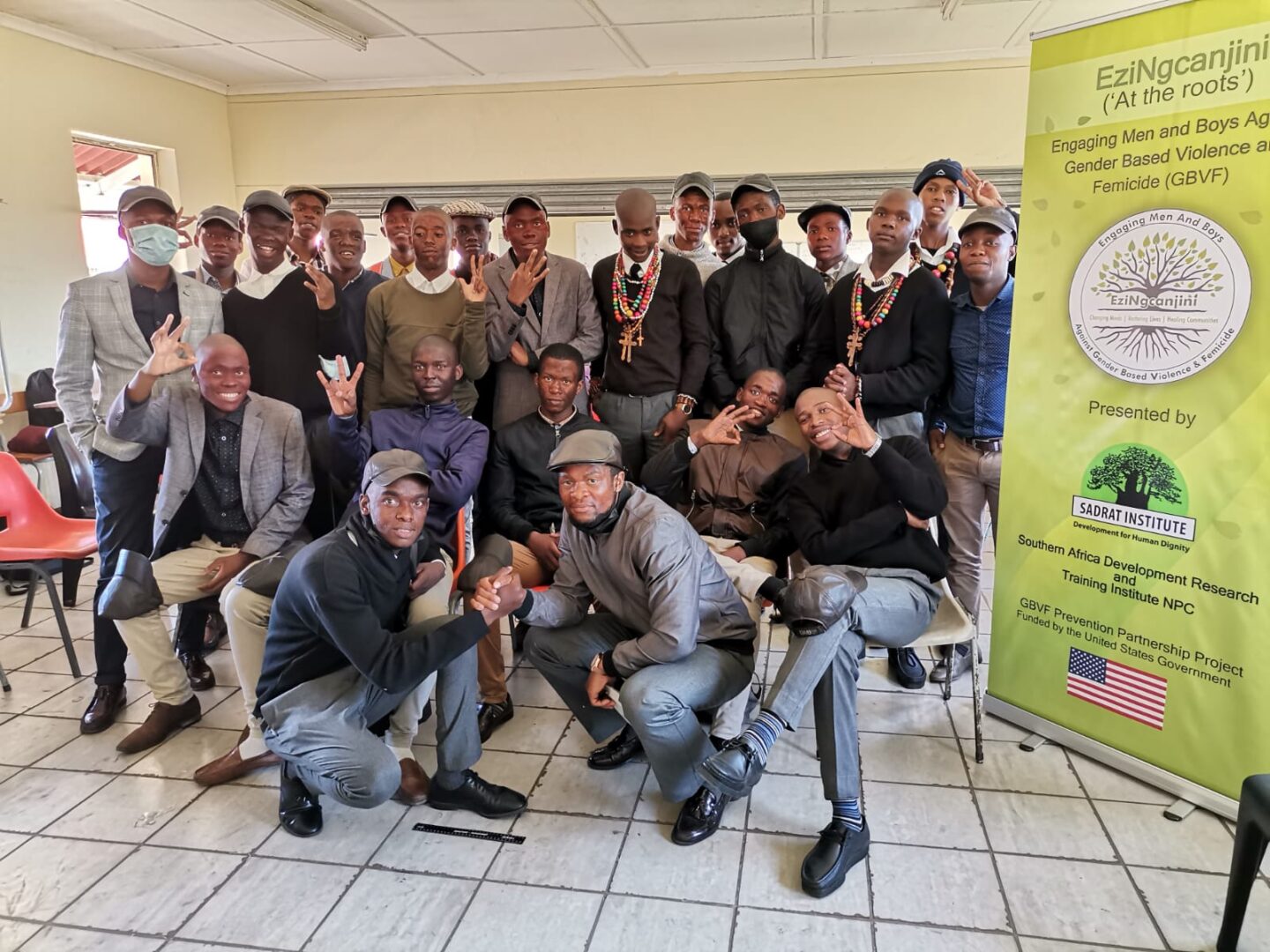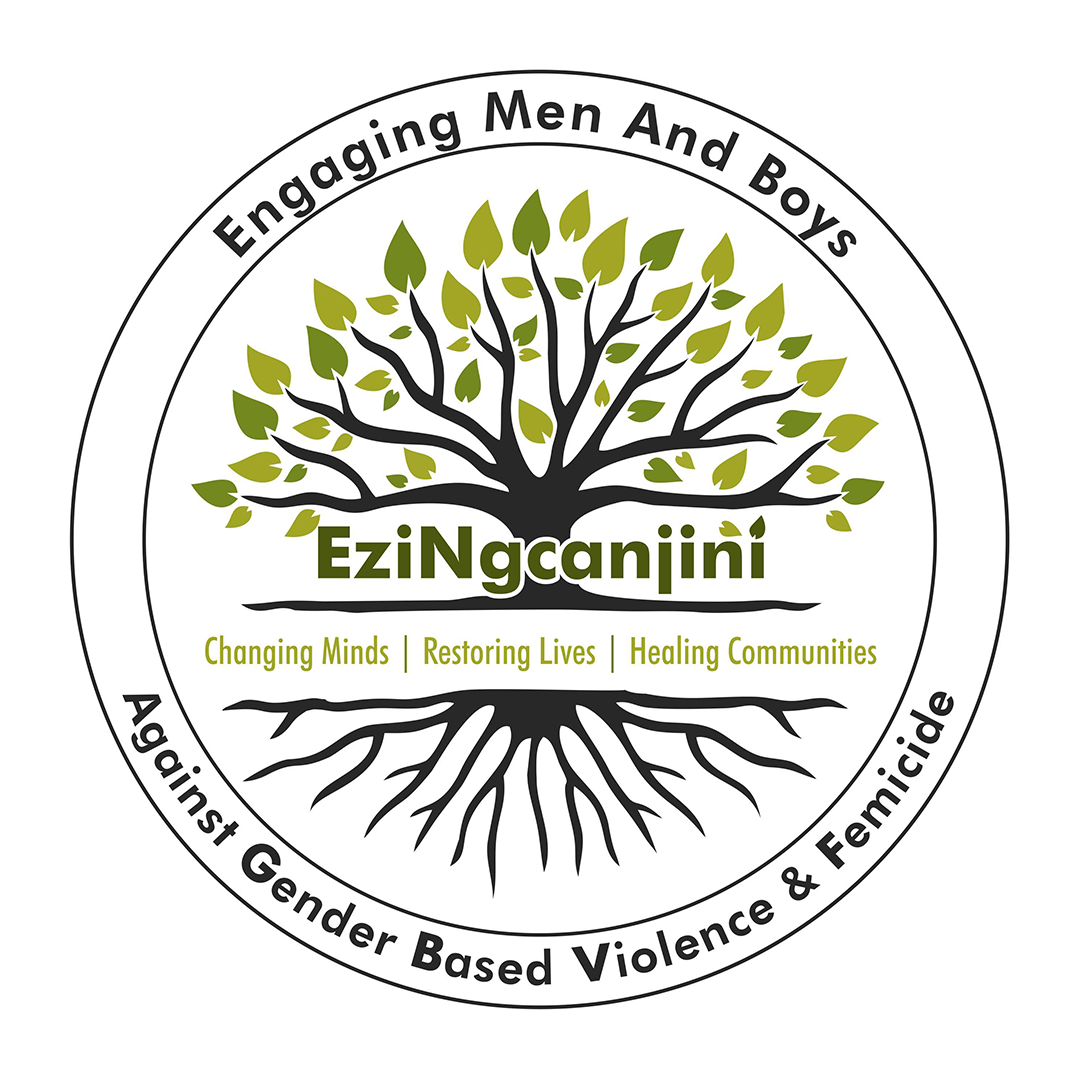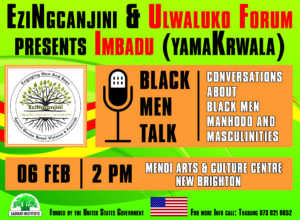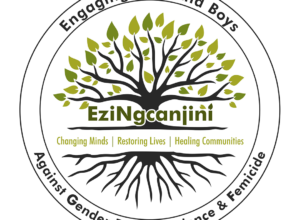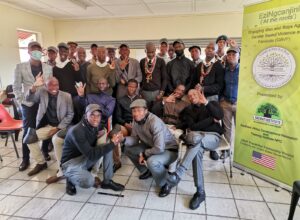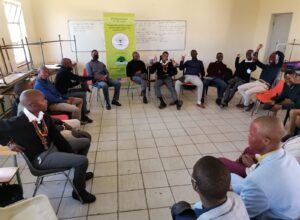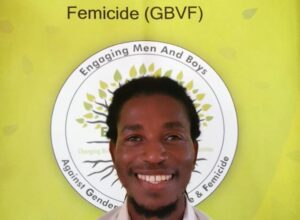EziNgcanjini - Rites of Passage Program
Engaging Men and Boys Against Gender Based Violence and Femicide
1. Introduction
Much attention and focus in South Africa has been directed towards responses to Gender-Based Violence and Femicide (GBVF). However, by addressing the underlying, interlinked causes of GBVF, we can work towards preventing it from happening in the first place. The program seeks to explore some of the following probing questions; What are social and gender norms, how are they enacted and how do they change at an individual and societal level of intervention? What are the main drivers and constraints of progress towards the attainment of gender justice? Why do harmful gender norms remaining deeply entrenched in local cultures? Changing men’s perceptions of how they accept and practice equitable gender norms is part of a broader social and political process of change. In this program there is also reference to what is referred to as “men’s engagement,” a terminology representing gender specific work with all male-identified individuals, inclusive of both men and boys. Engaging young men and boys in critical reflection of how their identities are socially constructed and deeply embedded within a patriarchal society is essential to addressing gender injustice. When aware of how gender norms and stereotypes can shape their lives in negative ways, men and boys become allies in the cause for gender justice and can exemplify gender equality in their own lives. The program aims to develop men and boys as more critically conscious, reflective, and engaged citizens who seek to promote justice in their lives, to live in equality, and who articulate these values with their voices and action.
EziNgcanjini is a violence prevention program with a “gender transformative” approach, that is, an explicit focus on questioning hegemonic gender norms and expectations. The program employs a variety of prevention strategies at different levels of intervention. Moving from the micro-level to the macro-level, these strategies are:
(1) strengthening individual knowledge and skills;
(2) promoting community education;
(3) engaging, strengthening, and mobilising communities;
(4) strengthening the relationship of government and local organizations by consolidating efforts aimed at addressing GBVF.
Targeting men and boys aged 18+ years, the program is delivered over fifteen months in a combination of training workshops, live conversations, group discussions, policy advocacy and awareness campaigning to incorporate different social and process designs. These activities will focus on schools, universities, Technical and Vocational Education and Training (TVET) Colleges, prisons, churches, government institutions and local communities. Using participatory methods, the program facilitates conversations and formal, semi-structured workshops among young boys and men. The program values the significance of developing an evidence base through the exploration of other interventions that have worked in the South African context. For example, the EziNgcanjini program has been implemented in the Nelson Mandela Bay Municipality for the past three years and has shown success in dealing with specific drivers of GBVF, such as gender power inequality based on patriarchy, toxic masculinities (rooted in traditional gender norms), substance abuse, and gangsterism.
The EziNgcanjini Rites of Passage program has the following features:
(1) it has been tested in a pilot project and has been found to be effective;
(2) it is informed by a theoretical model; and
(3) it is multi-faceted and addresses several causal factors of GBVF.
The project also takes a whole community approach to dealing with GBVF, actively involving individuals, families, community members and leaders to address violence in their communities. In order to successfully elicit more men’s participation in GBVF prevention efforts, the program acknowledges the cultural specificities of the local context.
2. Program Impact
- a renewed approach towards a better understanding of GBVF and heightened activism;
- development of a positive masculinity and healthy manhood;
- mutual learning, exchange of good practices and cooperation between the United States of America (USA) and South Africa;
- designing and implementation of practices, protocols, and development of working methods which may be transferable to other geographic areas
- capacity building and training for 10 program peer educators;
- developing agency amongst men and boys and empowering them to address the issues that impact their lives, such as structural and interpersonal violence; and
- awareness-raising and education activities.
The program integrates the following five interventions:
(1) Group education of young boys in schools (Program ‘Boys2Men’) and young men in higher education institutions in workshops and group discussions;
(2) Manhood and Fatherhood group education (Program ‘Men2Men’);
(3) Community ‘EngageMen’ campaigns;
(4) Perpetrators’ counselling to address intimate partner violence ; and
(5) Engaging men in strategies to prevent GBVF through advocacy.
3. Program Goals and Objectives
As mentioned, the aim of the program is to work towards awareness raising and prevention of GBVF among men and boys by helping to question non-equitable gender norms about masculinity and develop their political and ethical obligation against GBVF. The following are the related program objectives;
(1) To conduct workshops among teenage and adult men in the Eastern Cape to explore how their attitudes (conscious and unconscious) impact on the lives of women, girls, other men and boys (or can perpetuate GBVF).
(2) To motivate and encourage young boys and men's activism to combat GBVF in their communities.
(3) To strengthen the relationship of government and local organizations by consolidating efforts aimed at addressing GBVF.
4. Program Methods and Design
The Alternatives to Violence Project (AVP) process will be used in the program workshop design to provide experiential learning spaces that are democratic and critically engaging for all participants. Since 1975 AVP has evolved a structure, process and workshop activities that have consistently yielded positive results. The program is also rooted in popular education, in feminist collective action (intersectional feminism in particular), and informed by the work of Brazilian educator, Paulo Freire. Freire espoused the idea of collective consciousness-raising among those oppressed by the many ways in which people are marginalized – through racism, sexism, homophobia, transphobia, classism, ableism, and so forth. Influenced by AVP methodology, principles and values, we take this work further by not only supporting men and young boys to recognize ways in which power and oppression manifest in their lives, but also providing them with opportunities to experience, model and practice skills to create healthier relationships, positive social networks, and nonviolent communities.
The diagram below provides an illustration of the methods and design:

Contact Details:
Primary Contact Person: Thabang Queench (EziNgcanjini Program Manager)
Alternative Contact Person: Gerhard Lück (EziNgcanjini Finance Accounting Manager and Managing Director for SADRAT Institute)
Alternative Contact Person: Shena Lamb-du Plessis (EziNgcanjini Workshops’ Coordinator, AVP National Coordinator and Board of Director for SADRAT Institute)

